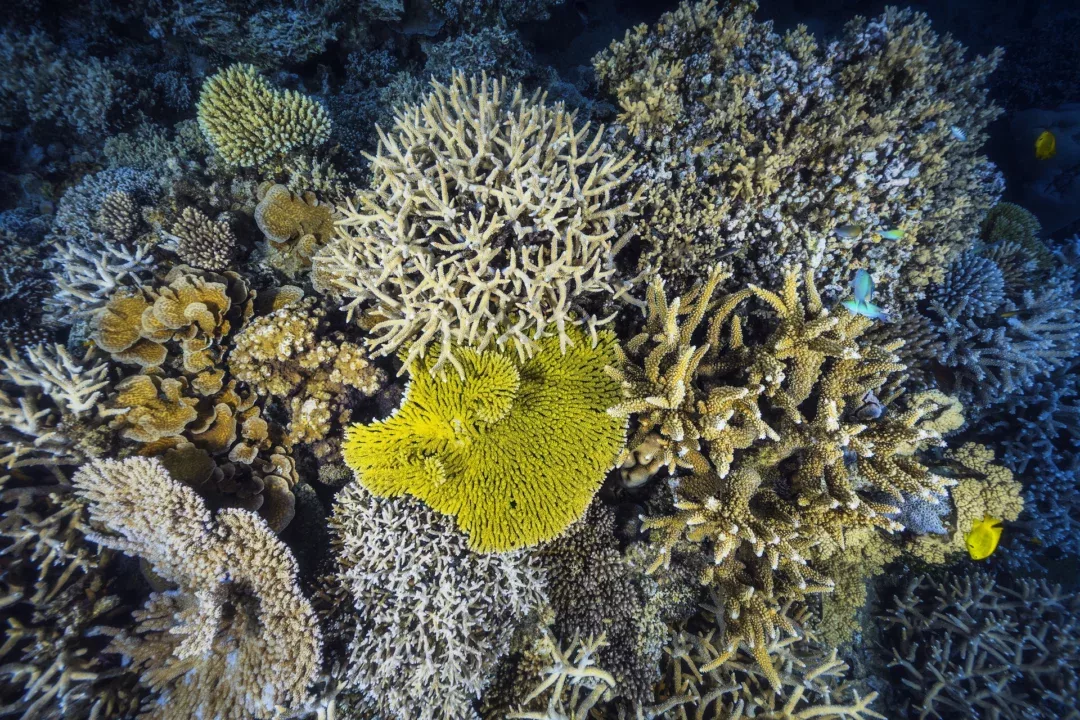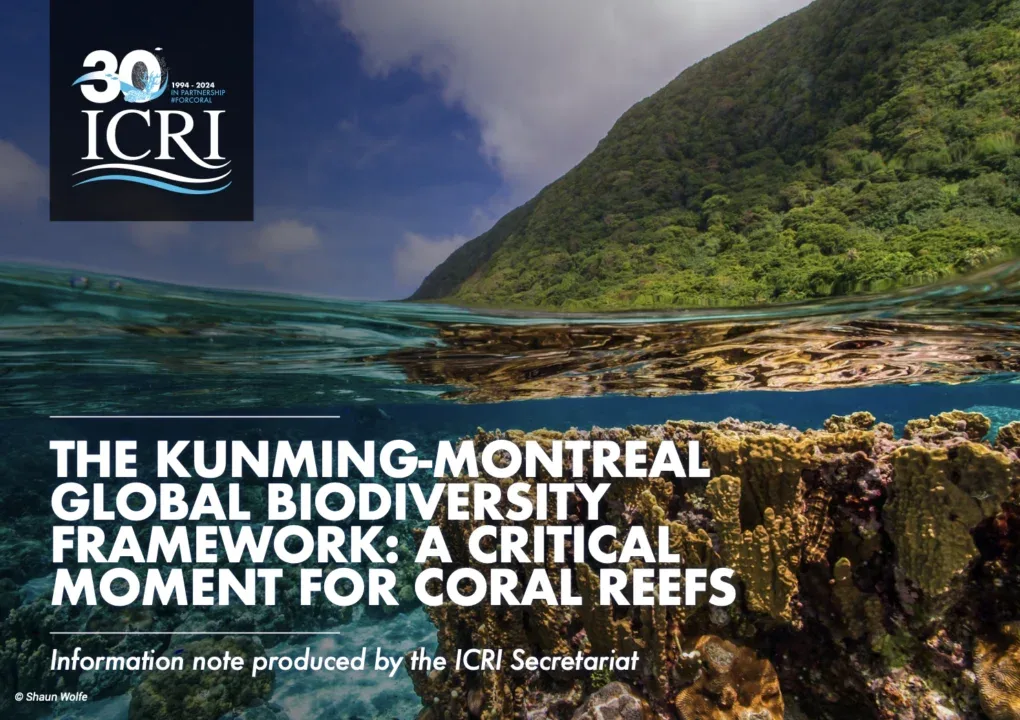The oceans transcend borders, and the challenges we face demand a collective response – all nations—both coral reef and non-coral reef states – must unite #ForCoral.
The Kunming-Montreal Global Biodiversity Framework (GBF), adopted in December 2022 during the 15th Conference of the Parties to the Convention on Biological Diversity (CBD), is a milestone agreement aimed at halting and reversing biodiversity loss by 2030. It aims to catalyse, enable, and galvanise urgent and transformative action by Governments, and subnational and local authorities, with the involvement of all of society, to achieve the outcomes it sets out in its Vision, Mission, Goals and Targets. The GBF provides a crucial roadmap for safeguarding the planet’s biodiversity, including protecting 30 per cent of the Ocean by 2030, often referred to as 30×30. Whilst not explicitly mentioned in its 23 Targets, the GBF remains relevant to coral reef ecosystems with 16 out of 23 targets proposed to be highly relevant. The urgency for action has never been more pressing, making the upcoming Sixteenth meeting of the Conference of the Parties to the Convention on Biological Diversity (CBD COP16) a pivotal moment for coral reef ecosystems.
The ICRI Secretariat has therefore put together an information note including the Key asks for coral reefs at CBD COP16:
- Strengthened Management Frameworks: Advocate for the integration of comprehensive management practices within the GBF framework. Effective spatial planning and marine protected areas (MPAs) are essential to preserving coral reef ecosystems. By halting land and sea use changes and ensuring sustainable fishing practices, we can enhance the resilience of coral reefs against environmental stressors. This aligns directly with Target 1 and Target 3. To double the area of coral reefs under effective protection by 2030, with 100% protected by 2050; bolstering resilience-based coral reef conservation efforts to transcend Target 3 of the GBF.
- Effective Restoration: Assist the development and implementation of innovative solutions at scale and climate smart designs that support coral adaptation to impact 30% of degraded reefs by 2030. Effective restoration (Target 2) of coral reef ecosystems should prevent reefs from becoming dominated by algae, prevent loss of biodiversity, allow reefs to maintain structural rugosity, and keep pace with warming oceans and sea level rise.
- Pollution Management and Regulation: Highlight the urgency of reducing land-based pollution (Target 7) that degrades coral reefs. This includes implementing stronger regulations on agricultural runoff, plastic waste, and nutrient pollution. By improving water quality and minimising pollutants entering marine environments, we can significantly enhance the health and resilience of coral ecosystems.
- Capacity Building and Knowledge Sharing: Stress the importance of investing in capacity building (Target 20) for effective management of coral reefs. This involves training local authorities, community groups, and stakeholders in sustainable practices and fostering knowledge sharing between nations. Better-equipped communities can implement and enforce regulations that protect coral reefs from overexploitation and environmental degradation.
- Monitoring and Accountability: Call for the establishment of robust monitoring systems that track the health of coral reefs and evaluate the effectiveness of management strategies. The Global Coral Reef Monitoring Network (GCRMN) can play a crucial role in this, providing essential data to inform adaptive management approaches that can respond dynamically to changing conditions and threats.
- Scaling Up Finances from Public and Private Sectors: Advocate for increased financial investment for coral reefs from both public and private sectors. Blended finance models, public-private partnerships, and innovative funding mechanisms can unlock significant resources to support the restoration, management, and resilience of coral reefs. This aligns with Target 19, which focuses on increasing financial resources for biodiversity conservation, ensuring coral reef ecosystems receive adequate funding to meet national and global targets #ForCoral.


